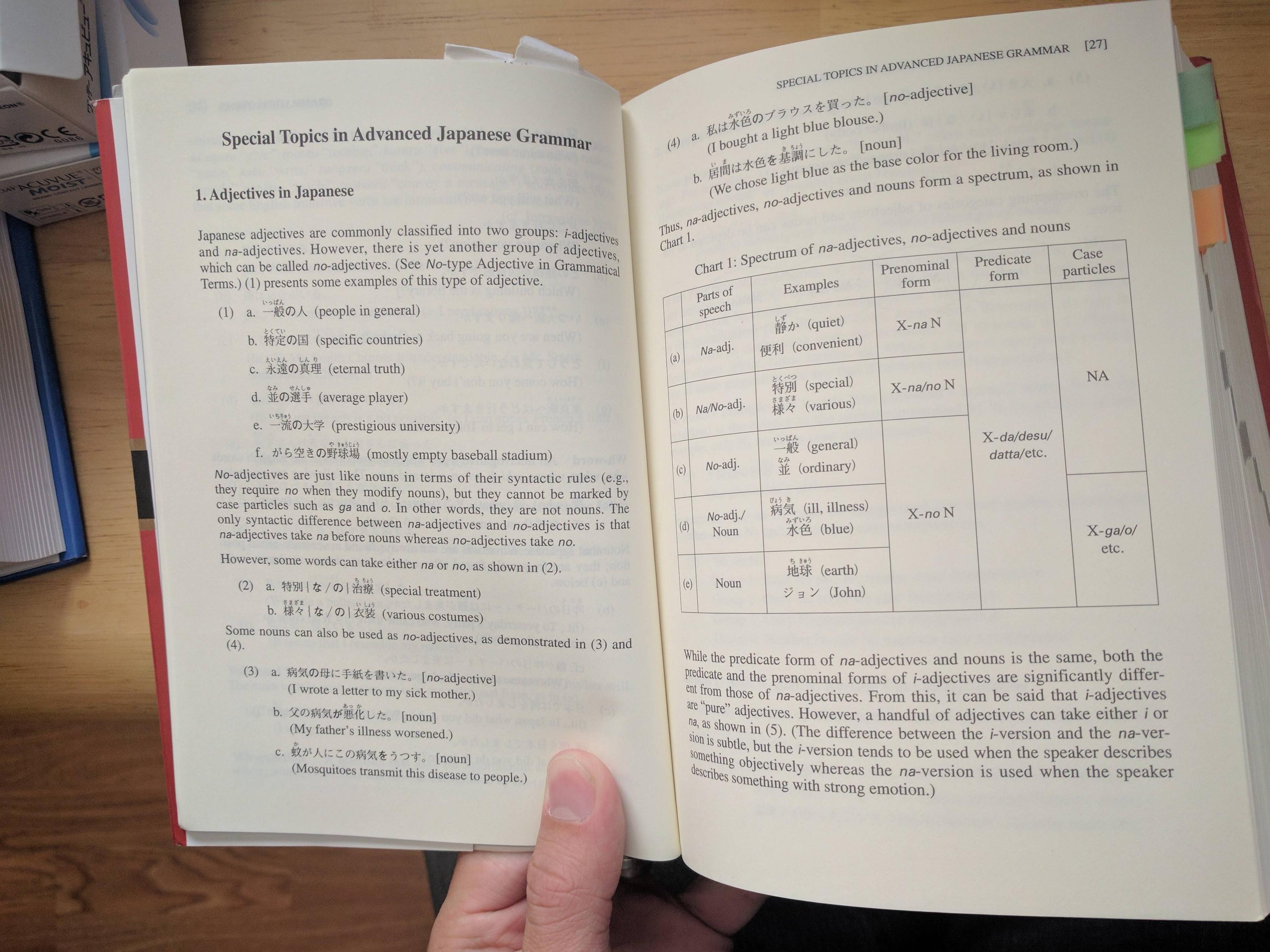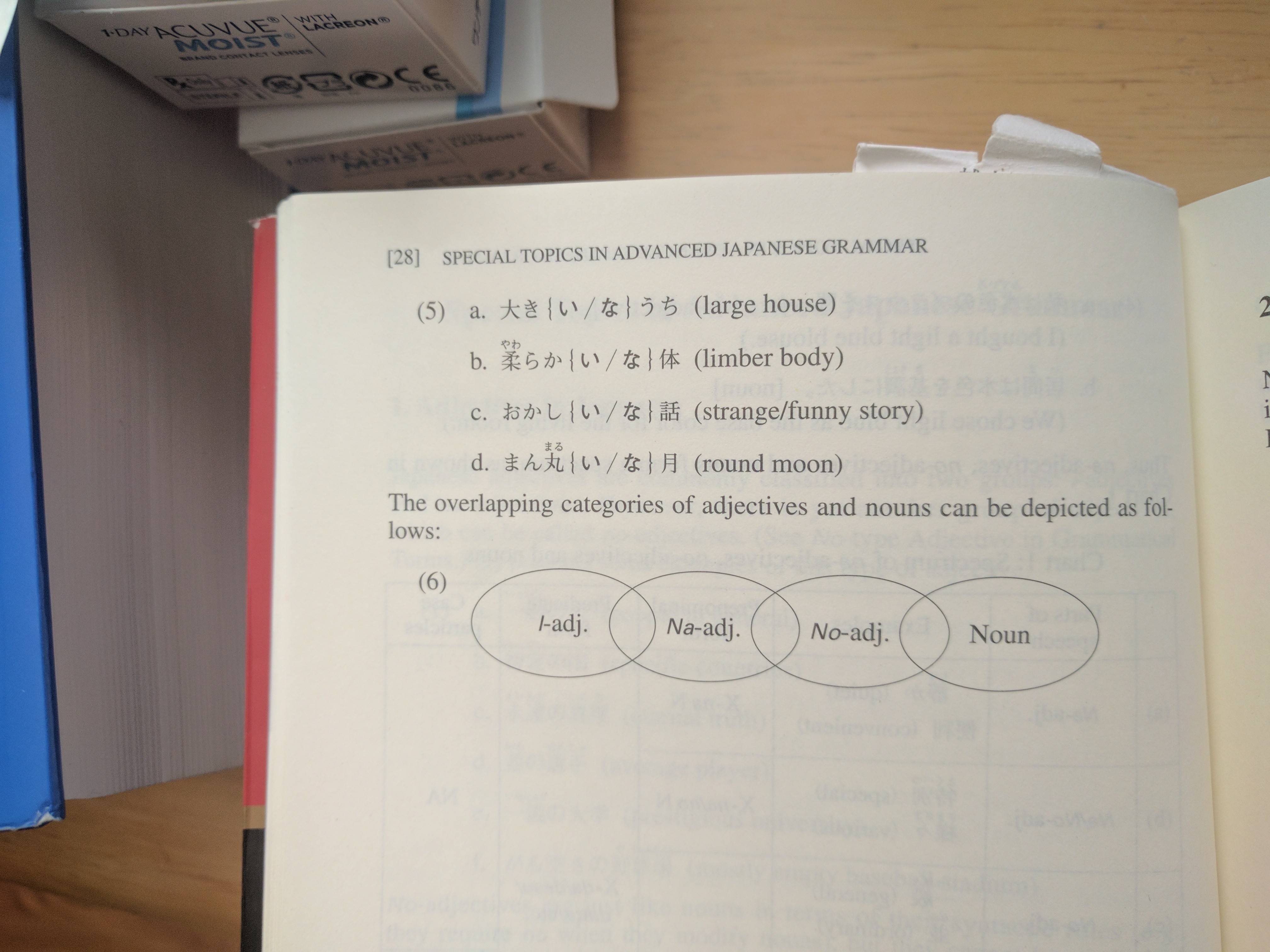A dictionary lists 最高 as being both a no-adjective and na-adjective. I've also seen other examples of this. However, is there a difference between using it either form since they're both attached to nouns?
4 Answers
Basically you should stick to 最高の~. Personally I feel 最高な~ sounds slightly peculiar.
In BCCWJ, there are 2410 examples of 最高の, and only less than 20 examples of 最高な + noun. As for the meaning, I see no difference. All the examples of 最高な + noun in BCCWJ seemed safely interchangeable with 最高の.
I found the following in A Dictionary of Advanced Japanese Grammar:
No-adjectives are just like nouns in terms of their syntactic rules (e.g. they require no when they modify nouns), but they cannot be marked by case particles such as ga and o. In other words, they are not nouns. The only syntactic difference between na-adjectives and no-adjectives is that na-adjectives take na before nouns whereas no-adjectives take no.
However, some words can take either na or no, as shown below:
特別{な/の}治療{ちりょう}(special treatment)
様々{な/の}衣装{いしょう}(various costumes)
So in short, the meaning of the adjective does not change between the use of な or の。 Directly answering your question, 最高の and 最高な have the same meaning, and the usage is the same as well. However, if there are nuances on when to use な over の, I don't know them. I suspect that only those who have studied Japanese for a long time would know the nuances, if there are any.
Below, I will include a few attached pictures where I found this information. It's an interesting and fantastic read when studying adjectives!
-
1Late to the conversation, but hey. :) I'd like to point out that 最高 is a noun that has taken on attributive / adjectival senses, so that falls outside of the discussion of の adjectives that cannot be used as nouns (preceded by determiners like この, あの, and followed by particles like が, を, etc.). I suspect that pure-adjective (i.e. can't take が etc.) の words like 特別 and 様々 represent either a shift in particle usage, where な and の have come to be used interchangeably, or in concept, where 特別 and 様々 may be taking on noun-ish qualities among some speakers (I do see ~の特別が in Google hits). Commented Sep 10, 2019 at 18:00
To complement the existing answers:
- When modifying nouns, some words normally only take の (like 病気), some only な (like 静か), and some accept both (like 特別).
- Among the ambivalent words, some have a preference (最高の is much more frequent than 最高な, while イレギュラー prefers な to の); others vary a lot between な and の (随分、 ダメダメ、オリエンタル、ルーズ).
- Also, in some words the choice of particle (that is, the choice between noun and adjective forms) does matter for the meaning: 平和な国 "a peaceful country" vs. 平和の国 "The Country of Peace". For others, it doesn't seem to affect it clearly: 真っ黒な靴 = 真っ黒の靴 = "pitch-black shoes". According to Satoshi Uehara な makes it feel more like a matter of degree, a gradable 'quality'; while の makes it feel more like a binary, on/off 'thing'. I think it's a pretty subtle effect.
Sources: Uehara's Syntactic Categories in Japanese; and the Japanese wikipedia as a corpus.
Based on this paper, which is about differences in the use of language between native speakers and Chinese students of Japanese, it appears to be a prime example of how language gradually changes over time.
I don't have time to read the entire paper, but the section relevant to this question mentions that "最高の" is the one listed in Japansese dictionaries (国語辞典) and the more natural of the two. It also states:
同調査における「最高」の選択傾向でも、母語話者100名中「最高な(5名)」「最高の(80名)」「最高な/の(両方・15名)」のように、使用が分かれる結果であった。
It then goes on to note that between those who use "な" and those who swing both ways, one out of five native speakers consider "な" acceptable, and may be influencing such usage among non-native learners.
I only skimmed through very briefly, but I didn't see any mention of differences in meaning or nuance between the two.


